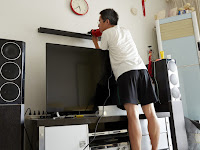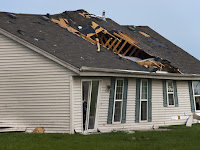
Home Sharing - The Risks
pada 10:25 PM
Home sharing platforms like Airbnb have created a new business opportunity and source of income for homeowners and tenants across the country. However, there are risks for the occupant. The horror stories about assaults, condos being held hostage, theft and property damage are well known. What is often overlooked is the risk for the property owner. If you are a building owner, you need to be aware of the following issues.
Who Is Staying There?
If you own a building and the tenants are on Airbnb, you could be exposed to serious risks. Unlike a traditional rental which requires a detailed application process, extensive information collection and verification about the tenant, home sharing allows free access to your property. Legally speaking, you have no contract with the Airbnb tenant and so you have little or no leverage if an incident should occur. Also, the rights, duties and liability limitation of the building owner in regard to a home sharing tenant are still a grey area. That only increases your risk.
What about Renter’s Insurance?
Your tenants may assume that their renter’s insurance will cover them for any loss or damage caused by the home sharing guest they take in. It may do so, but it also may not. There is no guarantee on this and the protection available will depend on the specifics of each renter’s insurance policy.
What You Can Do To Protect Yourself
There are a few things a building owner can do to protect his interests. Key among them are:
- Prohibit home sharing.This is the most comprehensive option. Have your lease agreements drafted to include the clause that the tenant is prohibited from using Airbnb or other home sharing services. In addition, it is a good idea to have an addendum to the lease agreement which clearly states the owner’s position in regard to home sharing and details the risk for the owners, the tenants and others in the building. The tenant must accept and sign the document.
- Monitor Home Sharing Platforms. There could be some tenants who sign a lease that prohibits home sharing, but think that they can bypass it and share their homes on the quiet. It is easy to claim they have large families and relations keep visiting them. The best way to control this is to monitor Airbnb and other platforms to look for any listingsof the properties you own.
- Consult Your Insurance Broker. Insurance is a complicated issue, especially when multiple coverages are involved. Where does the property owner’s coverage end and the tenant’s begin? Who is liable for what damage or loss caused by a home sharing guest? Only a professional will be able to clearly define where you stand and advise you on what additional coverage, if any, you need to protect yourself from loss or liability caused by home sharing.
Remember, home sharing allows people whom you, the property owner, know nothing about to occupy the premises you own. There are legal, financial and ethical issues involved and you need to protect yourself.





